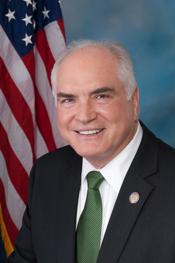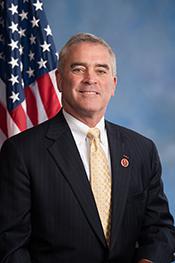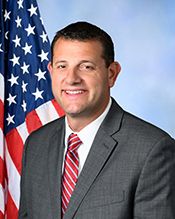0
0
0
Neighborhood Homes Investment Act
3/9/2024, 8:15 AM
Summary of Bill HR 3940
The Neighborhood Homes Investment Act, also known as Bill 118 hr 3940, is a piece of legislation introduced in the US Congress. The main goal of this bill is to provide tax credits to individuals and organizations that invest in the development and rehabilitation of affordable housing in low-income neighborhoods.
Under this bill, investors would be eligible for a tax credit equal to 35% of the qualified development costs incurred in the construction or rehabilitation of a qualified home. The tax credit would be spread out over a five-year period, providing an incentive for long-term investment in affordable housing projects.
The Neighborhood Homes Investment Act aims to address the shortage of affordable housing in low-income communities by encouraging private investment in these areas. By providing tax incentives to investors, the bill seeks to stimulate economic development, create jobs, and improve the overall quality of life in these neighborhoods. Supporters of the bill argue that it will help to revitalize struggling communities and provide much-needed housing options for low-income individuals and families. Critics, however, have raised concerns about the potential cost of the tax credits and the impact on the federal budget. Overall, the Neighborhood Homes Investment Act represents a bipartisan effort to address the affordable housing crisis in the United States and promote economic growth in underserved communities. It is currently being considered by Congress and may undergo further revisions before being voted on.
Under this bill, investors would be eligible for a tax credit equal to 35% of the qualified development costs incurred in the construction or rehabilitation of a qualified home. The tax credit would be spread out over a five-year period, providing an incentive for long-term investment in affordable housing projects.
The Neighborhood Homes Investment Act aims to address the shortage of affordable housing in low-income communities by encouraging private investment in these areas. By providing tax incentives to investors, the bill seeks to stimulate economic development, create jobs, and improve the overall quality of life in these neighborhoods. Supporters of the bill argue that it will help to revitalize struggling communities and provide much-needed housing options for low-income individuals and families. Critics, however, have raised concerns about the potential cost of the tax credits and the impact on the federal budget. Overall, the Neighborhood Homes Investment Act represents a bipartisan effort to address the affordable housing crisis in the United States and promote economic growth in underserved communities. It is currently being considered by Congress and may undergo further revisions before being voted on.
Congressional Summary of HR 3940
Neighborhood Homes Investment Act
This bill allows a business-related tax credit for certain development costs for the acquisition, rehabilitation, or remediation of qualified real property (i.e., real property affixed on a permanent foundation and comprised of four or fewer residential units, a condominium unit, or a house or apartment owned by a cooperative housing corporation).
The bill also provides for the exclusion from gross income, for income tax purposes, of the value of any subsidy provided to a taxpayer by any state energy office for purposes of improvements made to a qualified residence.
Read the Full Bill
Current Status of Bill HR 3940
Bill HR 3940 is currently in the status of Bill Introduced since June 9, 2023. Bill HR 3940 was introduced during Congress 118 and was introduced to the House on June 9, 2023. Bill HR 3940's most recent activity was Referred to the House Committee on Ways and Means. as of June 9, 2023
Bipartisan Support of Bill HR 3940
Total Number of Sponsors
1Democrat Sponsors
0Republican Sponsors
1Unaffiliated Sponsors
0Total Number of Cosponsors
128Democrat Cosponsors
84Republican Cosponsors
44Unaffiliated Cosponsors
0Policy Area and Potential Impact of Bill HR 3940
Primary Policy Focus
TaxationAlternate Title(s) of Bill HR 3940
Neighborhood Homes Investment Act
Neighborhood Homes Investment Act
To amend the Internal Revenue Code of 1986 to establish a tax credit for neighborhood revitalization, and for other purposes.
Comments
Sponsors and Cosponsors of HR 3940
Latest Bills
ESTUARIES Act
Bill HR 3962December 13, 2025
Federal Maritime Commission Reauthorization Act of 2025
Bill HR 4183December 13, 2025
National Defense Authorization Act for Fiscal Year 2026
Bill S 1071December 13, 2025
Enduring Justice for Victims of Trafficking Act
Bill S 2584December 13, 2025
Technical Corrections to the Northwestern New Mexico Rural Water Projects Act, Taos Pueblo Indian Water Rights Settlement Act, and Aamodt Litigation Settlement Act
Bill S 640December 13, 2025
Incentivizing New Ventures and Economic Strength Through Capital Formation Act of 2025
Bill HR 3383December 13, 2025
BOWOW Act of 2025
Bill HR 4638December 13, 2025
Northern Mariana Islands Small Business Access Act
Bill HR 3496December 13, 2025
Wildfire Risk Evaluation Act
Bill HR 3924December 13, 2025
Energy Choice Act
Bill HR 3699December 13, 2025
Neighborhood Homes Investment Act
Bill S 657May 10, 2024





